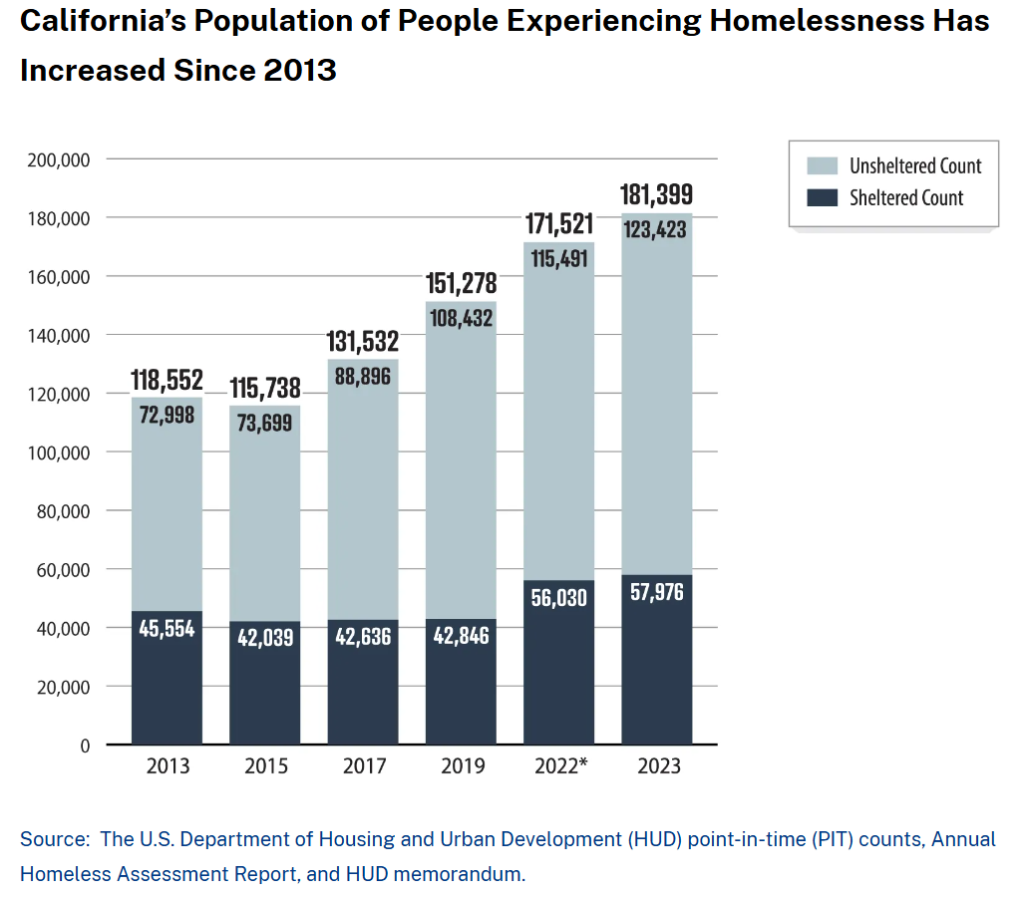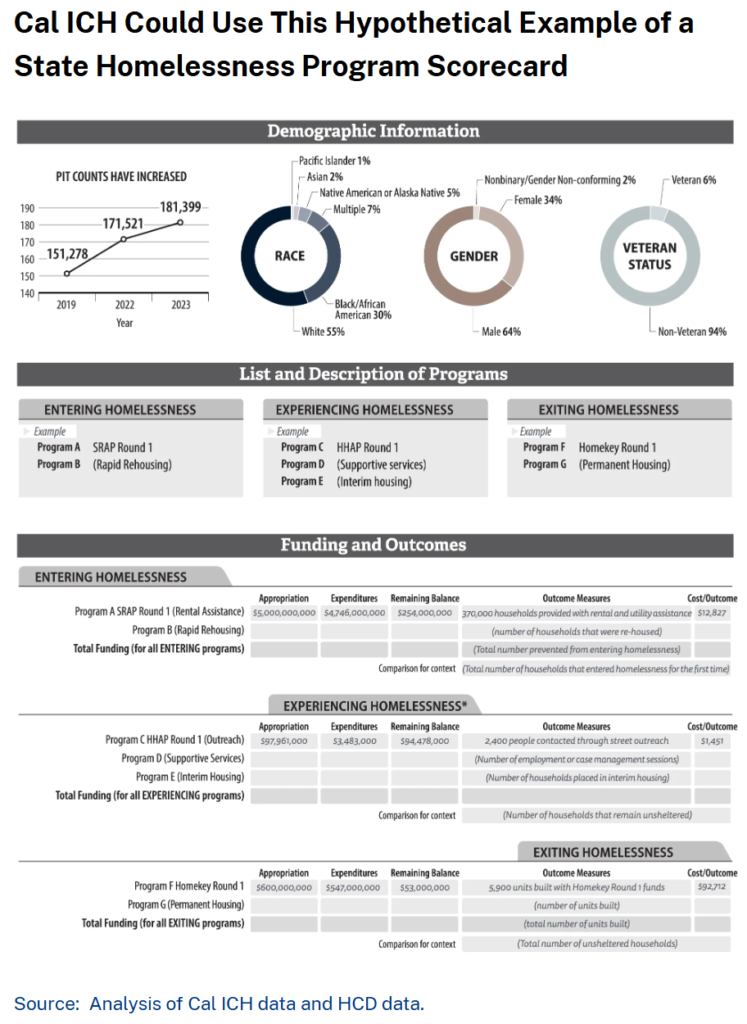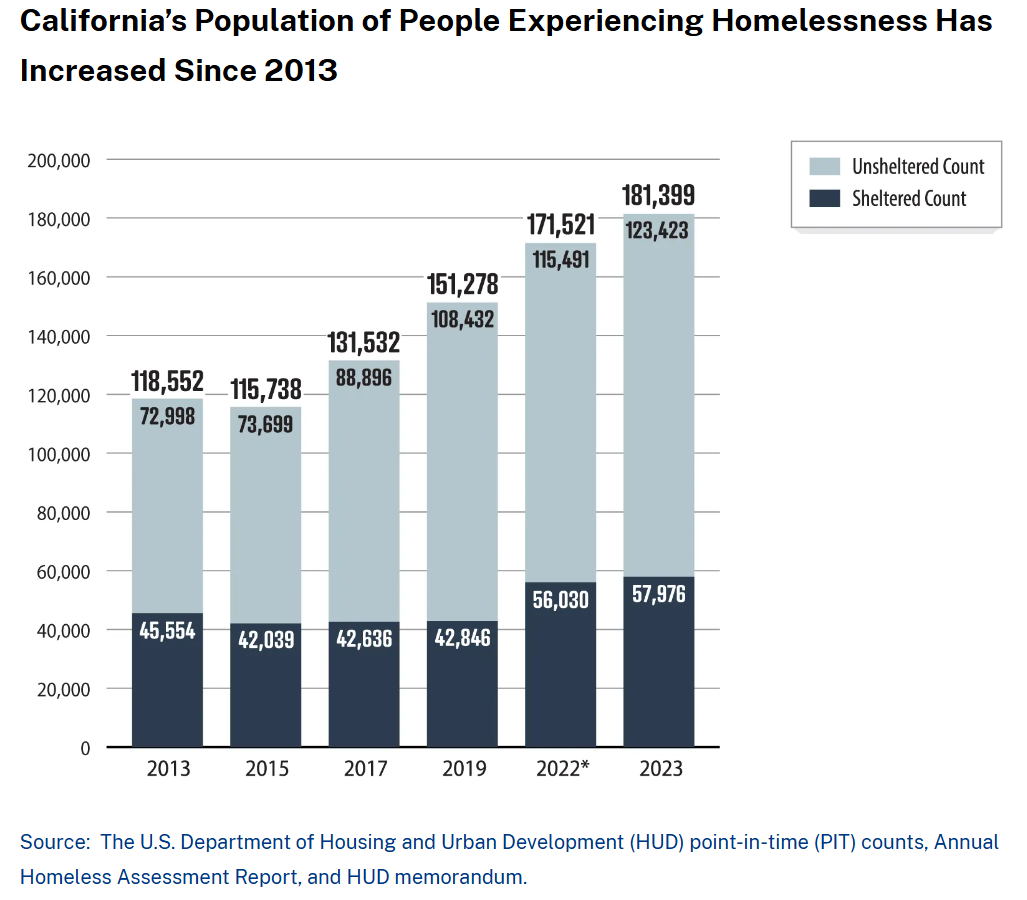California’s homelessness crisis has reached unprecedented levels, prompting a comprehensive audit by the California State Auditor. The report, released recently, provides an in-depth analysis of the effectiveness of state and local programs designed to address homelessness. The findings reveal significant inefficiencies, overlapping programs, and unmet needs, painting a complex picture of the challenges faced in tackling this critical issue.

Key Findings
The audit reveals that despite substantial investments in homelessness programs, California has struggled to make a significant impact. The state’s homeless population continues to grow, with an estimated 161,000 individuals experiencing homelessness on any given night, accounting for about 28% of the nation’s homeless population.
One of the most striking findings of the audit is the inefficient use of funds allocated to homelessness programs. The report highlights instances where funds were not fully utilized or were spent on ineffective initiatives. For example, some local governments failed to spend significant portions of their homelessness funds, resulting in missed opportunities to provide crucial services.
The audit also identifies considerable overlap and fragmentation among homelessness programs. Multiple state and local agencies run similar programs without sufficient coordination, leading to duplicated efforts and wasted resources. This lack of coordination often results in gaps in services, where some individuals fall through the cracks while others receive redundant support.
Unmet Needs and Barriers to Services
The report underscores the persistent unmet needs of the homeless population. Despite various programs, many individuals do not receive the necessary support due to barriers such as strict eligibility criteria, lack of awareness about available services, and inadequate outreach efforts. Mental health services and affordable housing are particularly underprovided, exacerbating the crisis.
Case Studies: Impact on Homeless Populations
The audit includes several case studies that illustrate the real-world impact of these inefficiencies. In one instance, a local government allocated millions of dollars to a program intended to provide temporary housing. However, due to bureaucratic delays and mismanagement, many units remained vacant for months, leaving countless individuals on the streets.
In another example, a mental health outreach program designed to connect homeless individuals with mental health services failed to reach its target population. The program’s restrictive eligibility criteria and limited outreach efforts meant that many who needed help the most were unable to access it.
Recommendations for Improvement
To address these issues, the California State Auditor’s report provides several recommendations aimed at improving the effectiveness of homelessness programs and ensuring better use of resources.
Enhanced Coordination and Oversight
One of the primary recommendations is to enhance coordination and oversight of homelessness programs. The report suggests creating a centralized body to oversee all state and local homelessness initiatives, ensuring that efforts are not duplicated and resources are used more effectively. This body would also be responsible for setting clear goals and metrics for success, enabling better tracking of progress.

Streamlined Funding Processes
The audit recommends streamlining funding processes to ensure that allocated funds are used efficiently and timely. This includes simplifying application procedures for local governments and service providers, reducing bureaucratic hurdles, and ensuring faster disbursement of funds.
Improved Outreach and Access to Services
To address unmet needs, the report suggests improving outreach efforts and making services more accessible. This includes expanding eligibility criteria for certain programs, increasing awareness about available services through targeted outreach campaigns, and investing in mobile service units to reach individuals in remote or underserved areas.
Focus on Mental Health and Affordable Housing
The report emphasizes the need to prioritize mental health services and affordable housing. It recommends increasing funding for mental health outreach programs, integrating mental health services into existing homelessness initiatives, and incentivizing the development of affordable housing units through tax credits and subsidies.
Moving Forward
The findings of the California State Auditor’s report highlight the urgent need for reform in the state’s approach to addressing homelessness. While significant challenges remain, the recommendations provided offer a roadmap for improving the effectiveness of homelessness programs and ensuring that resources are used more efficiently.
As California moves forward, it is crucial for state and local governments to implement these recommendations and work together to address the root causes of homelessness. By enhancing coordination, streamlining funding processes, improving outreach efforts, and prioritizing mental health and affordable housing, the state can make meaningful progress in tackling this complex issue.
The report serves as a stark reminder that addressing homelessness requires a multifaceted approach and a commitment to continuous improvement. Only through concerted efforts and effective use of resources can California hope to make a lasting impact on its homelessness crisis.

